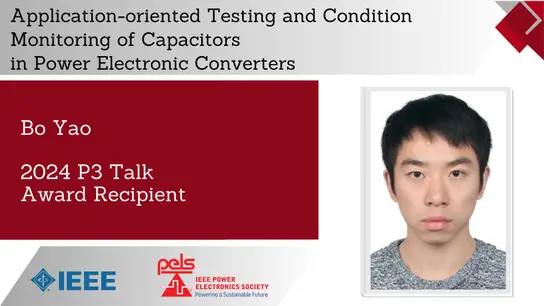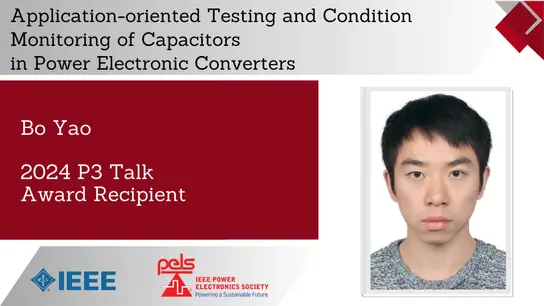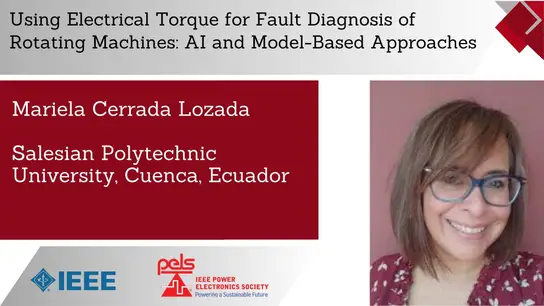Machine Learning Enabled Design Automation and Optimization for Electric Transportation Power Systems-Slides
Jana Doppa & Yue Cao
-
Members: FreePELS
IEEE Members: $8.00
Non-members: $12.00Pages/Slides: 62
17 May 2021
Abstract: This talk presents an automated design and optimization framework enabled by machine learning (ML) for electric transportation power systems. As these systems become increasingly complex and involve the co-design of multiple inter-dependent subsystems and components, a large amount of engineering time and effort is required to explore all possible designs due to large design spaces. Multi-physical domain models and simulations, essential to measure a given design’s performance, are typically computationally expensive to run – sometimes taking hours to days, depending on the system complexity. Providing an approach to drastically simplify this process – as in time and cost reduction – will allow faster and cheaper research and development throughout the transportation sector. Synergistic integration of advances in machine learning with physical domain knowledge paves one feasible pathway to practically realize this vision. Bayesian optimization (BO) is an effective machine learning framework to solve design automation problems with expensive experiments. This paper proposes a novel BO algorithm referred to as Max-value Entropy Search for Multi-objective Optimization with Constraints (MESMOC) to solve multi-objective optimization (MOO) problems with black-box constraints that can only be evaluated through design simulations. The key idea is to build statistical models of both design objectives and constraints, and use them to intelligently select the sequence of designs for evaluation based on the principle of output space entropy search – maximize the information gain about the optimal Pareto front – to efficiently uncover (approximate) Pareto optimal designs. MESMOC is capable of drastically reducing the number of design
simulations to discover a high-quality Pareto front. A heavy-duty vertical-takeoff-landing (VTOL) unmanned aerial vehicle (UAV) power system is selected to demonstrate the effectiveness of the ML-based MESMOC algorithm. In several experimental trials, the ML algorithm uncovered the entire optimal Pareto front while only exploring ~4% of the design space. The proposed ML algorithm, when compared to a popular genetic algorithm, showcases superior performance.
simulations to discover a high-quality Pareto front. A heavy-duty vertical-takeoff-landing (VTOL) unmanned aerial vehicle (UAV) power system is selected to demonstrate the effectiveness of the ML-based MESMOC algorithm. In several experimental trials, the ML algorithm uncovered the entire optimal Pareto front while only exploring ~4% of the design space. The proposed ML algorithm, when compared to a popular genetic algorithm, showcases superior performance.
Primary Committee:
PELS


